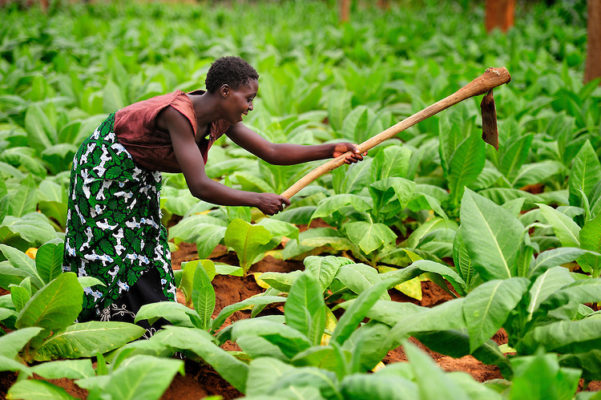
Agriculture
Malawi advised to tread carefully away from tobacco
April 19, 2022 / Bester Kayaye

As the country navigates away from overreliance on tobacco as its main forex earner, the Foundation for Smoke Free World (FSFW) has cautioned stakeholders in the local tobacco production value chain to tread carefully so as not to overlook key components essential for Malawi’s economic growth.
The warning has been made in FSFW’s report, which analyses Malawi’s tobacco production trends and other critical factors related to the leaf’s value chain.
In the report, FSFW observes that global tobacco production has, in recent years, undergone significant changes with tobacco production functions moving from high-income countries to low- and middle income countries.
The effects of such shifts has been very pronounced in sub-Saharan Africa in countries like Malawi, arguably the most tobacco dependent economy in the world.
FSFW notes that as interest to diversify in order to minimize effects of tobacco production, there is need to understand the macroeconomic, policy, and political landscapes in a country because the risks in these spheres can hinder the adoption of even the most technically efficient, economically sound, and farmer-friendly alternatives for diversification.
“A closer look at the tobacco value chain within Malawi reveals that smallholder tobacco farmers are often the most disadvantaged and vulnerable link in the chain, with tobacco production often coming at their expense, literally and figuratively,” it says pointing out that the day-to-day work and exposures associated with tobacco farming are harmful to the health of those who carry it out as well as to the surrounding environment.
“Such observations underscore the extent to which the existing value chain harms the economic well-being, health, and environment of smallholder tobacco farmers and helps make the case for shifting away from tobacco dependence, particularly as the global demand for tobacco declines,” the report further notes
In Malawi, tobacco pricing, which has recently hit new lows, is unpredictable and has forced government to consider reducing the country’s overreliance on tobacco, as evidenced by its new focus on diversification and sustainable agricultural transformation outlined in its key policy frameworks, including the Malawi Vision 2063 and other initiatives
FSFW suggests the need for sustainable, and investment-friendly crops, livestock, and other sources of livelihoods.
“Ultimately, the success of these livelihoods options will depend on addressing the many structural obstacles currently facing the economy in general and the agricultural sector, including limited access to inputs, barriers to reliable financing and sustainable investments, deficits in infrastructure, creation of markets for alternative high-value crops and gaps in knowledge, policy, and institutional capacity.”
Although tobacco continues to be a major crop and accounts for about 12% to 15% of the country’s gross domestic product (GDP), the number of tobacco farms have decreased from nearly 400 thousand to a little under 178,000 in 2019 and tobacco’s contribution to the total value of crop production has also decreased from 39% in 2004 to 18% in 2019































